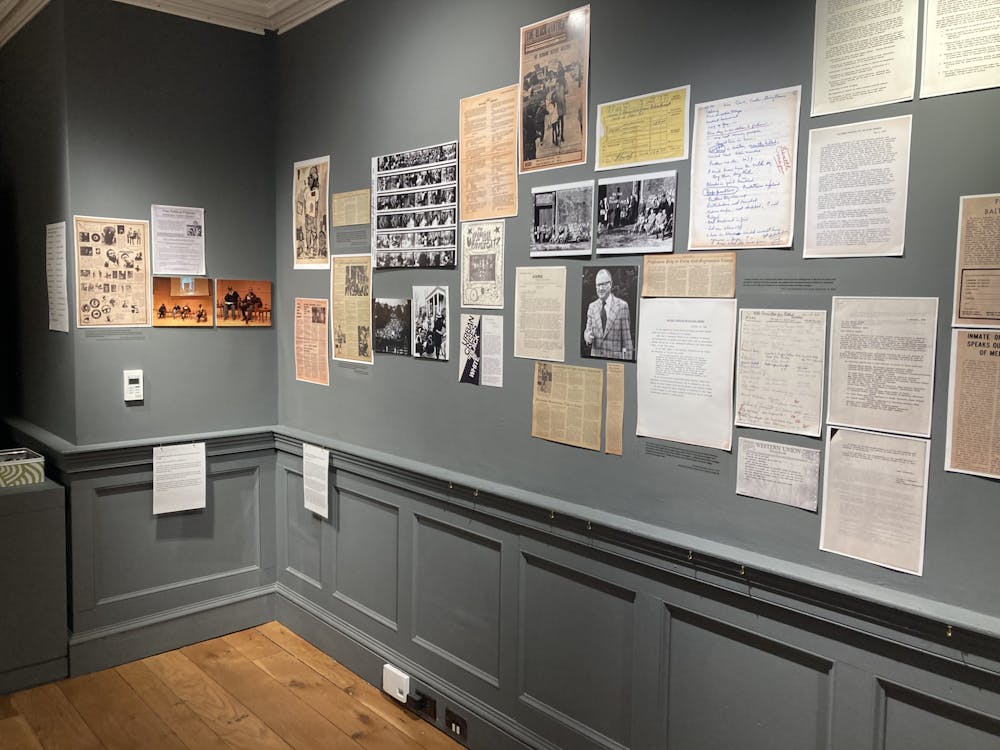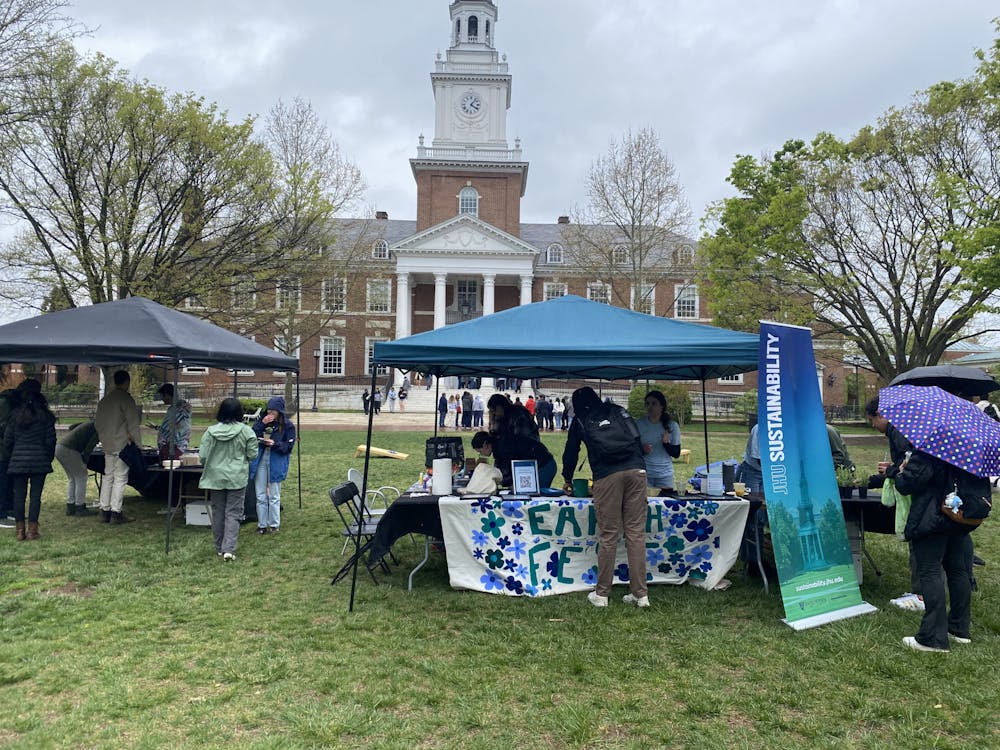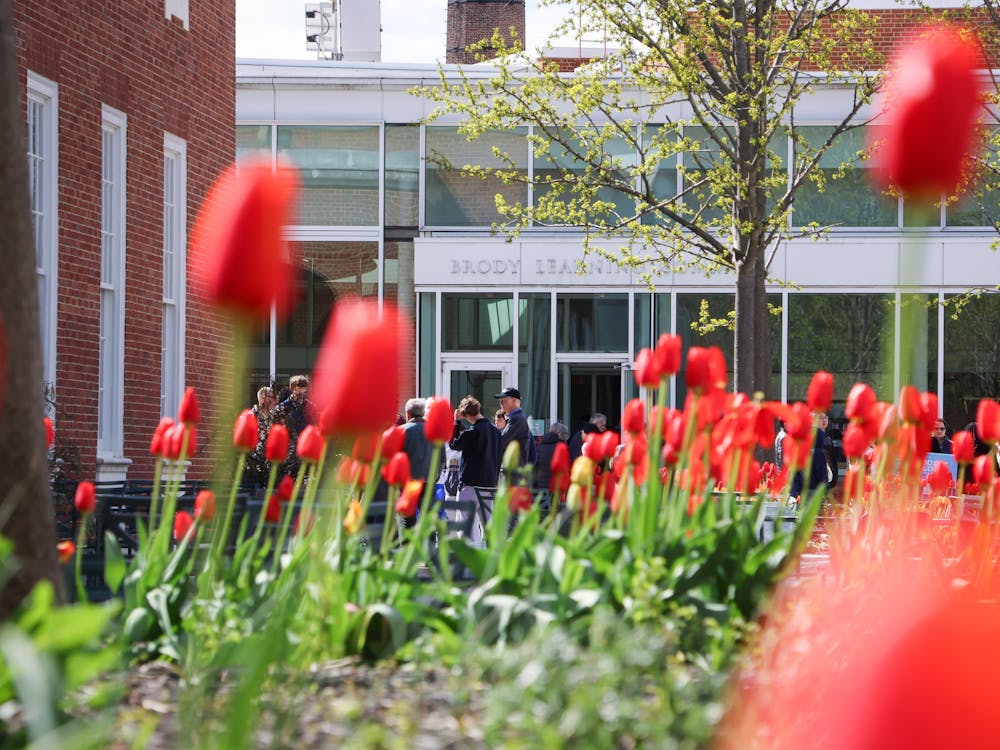Mark Bray, an organizer of the Occupy Wall Street movement, spoke at Red Emma’s bookstore about his new book, The Anti-Fascist Handbook on Thursday, Sept. 28. Occupy Wall Street was a global movement that started in New York City in 2011 to protest against worldwide economic inequality.
In his book, Bray explains the history of anti-fascist movements and explores how many fascist leaders initially come to power democratically.
He elaborated on that in his talk, saying that fascist leaders typically don’t “storm down the gates” in order to attain power, but rather they have those metaphorical gates opened.
“Mussolini and Hitler were appointed,” he said. “Their parties gained control not by staging revolutions but by working essentially within the parliamentary process. So if that’s the case we can see that the classically liberal prescription for stopping fascism is seriously flawed.”
In particular, Bray felt that many liberals overestimate the power of rational discourse or satire to stop fascism.
“A lot of people made really strong arguments against fascism and the Nazis in the ‘20s and ‘30s,” he said. “We can see that even satire, which I think has an important role in any political struggle, was not enough on its own. Charlie Chaplin made fun of Hitler and later regretted to some extent his portrayal for not having taken it seriously enough.”
Bray also took issue with the belief that law enforcement can help stop fascism. He claimed that police have historically been more likely to vote for fascist parties than the general population, as was the case in Germany and France in the 1920s and ‘30s.
In particular, Bray believes American police officers were unreliable in combatting fascism and white supremacy.
“The FBI has been investigating white power infiltration into local law enforcement,” Bray explained. “Where were the police in Charlottesville? They were standing aside. I saw one video of a police helping a fascist group in a way they never would have done in a Black Lives Matter march.”
Bray criticized the idea that government checks and balances could prevent fascism as well. He used the example of Hitler’s rise to power in Germany, saying that many fascist leaders can manipulate the government during times of crisis.
According to Bray, this reasoning justifies why movements like Antifa believe that democratic governments are unreliable in fighting fascism.
“Militant anti-fascists don’t see parliamentary government as a reliable bulwark against fascism,” he said. “They argue that you have to stop it before we even have this conversation.”
Bray said he supported the anti-fascist movement and emphasized the importance of supporting minority communities as opposed to simply siding with public opinion.
“Anti-fascism encourages us not to necessarily reject popular politics but to think about how we organize social movements by focusing on defending communities and populations under attack, how to stop fascism and work towards building support from that basis rather than starting from popular opinion,” he said.
Former Baltimore City Council President Lawrence Bell agreed with Bray’s message but was worried that the audience was not large enough.
“This is a progressive group, so we’re kind of preaching to the choir, but I think that we got to find a way to get this information out to people, typically people who are in the mainstream media, because it’s not always that they are right wing. Sometimes it’s just plain ignorance,” he said.
Bell also felt that Americans in particular lack the historical knowledge necessary to understand fascism.
“A lot of Americans really don’t know and they don’t realize that Hitler and the Nazis started off small but they would intimidate everybody, particularly people on the left,” he said. “Because they were never confronted on that level, they grew.”
Baltimore resident Emily Werner agreed that Bray’s analysis of the Antifa movement was important especially in the current political climate.
“I think it was an informative talk. He admitted that the book was pretty Eurocentric, but I guess if you have a page limit then that’s necessary,” she said. “It’s really important that literature like this is coming out.”















Please note All comments are eligible for publication in The News-Letter.